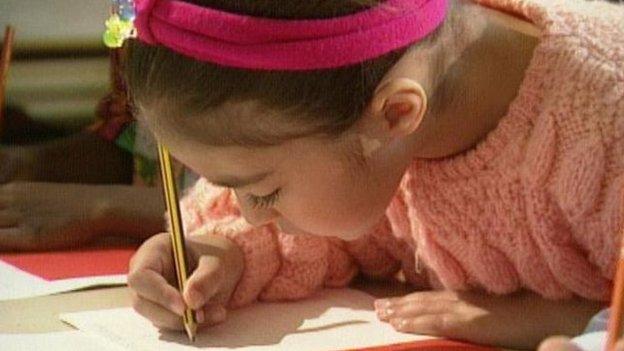Education minister makes plea to 'all teachers' over poor pupil literacy
- Published
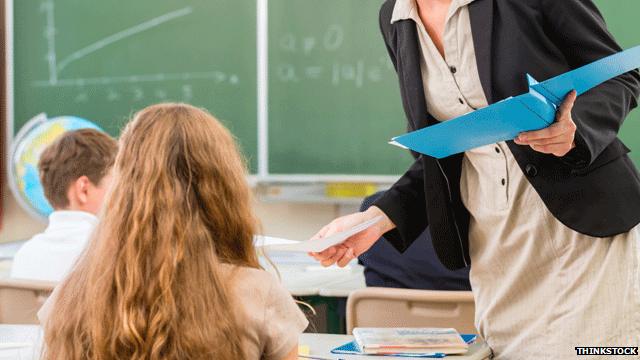
A survey in Scotland showed a fall in literacy rates among P4, P7 and S2 pupils
Scotland's education secretary believes it is not just up to English teachers to improve literacy levels.
Angela Constance was speaking after a survey showed reading standards had fallen, external among P4, P7 and S2 pupils.
She said she was "astonished" that fewer than 20% of non-English secondary teachers thought reading and writing, external was "vital" to their curriculum area.
However, Scotland's largest teaching union, the EIS, said Ms Constance had wrongly used data to make her point.
Union head Larry Flanagan insisted the Scottish Survey of Literacy and Numeracy (SSLN ) showed that teachers had a "very high level of engagement with literacy skills and development across non-English subject areas".
In a speech to educationalists gathered at Glasgow University, Ms Constance said it was important to shine a light on some of the weaknesses in Scotland's education system, as well as its strengths.
She explained: "This year's results on literacy show that we need to step up the pace of change. Frankly, it's not good enough that some children appear to be doing less well in basic skills the older they get.
"SSLN also found that, if we take away English teachers, fewer than 20% of secondary teachers think that reading and writing is 'vital' to their curriculum area.
"I'm astonished at this, frankly.
"And if it is the case, then we must change those attitudes and do more to support our schools and teachers, to raise the quality of teaching in literacy across other curriculum areas.
"If we are to achieve our goals and ambitions for all of Scotland's children, then the whole system needs to be focussed on achieving our literacy goals."
'Selective data use'
Mr Flanagan said that his union did not recognise the scenario the minister had outlined.
He believed teachers "clearly understand" the importance of literacy as a "foundation block for learning across all subjects".
Mr Flanagan added: "Scottish teachers have worked exceptionally hard to deliver Curriculum for Excellence, external and their efforts should not be undermined by selective and inappropriate use of data."

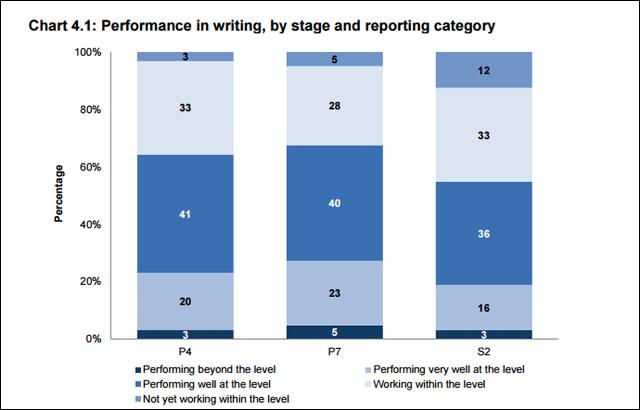
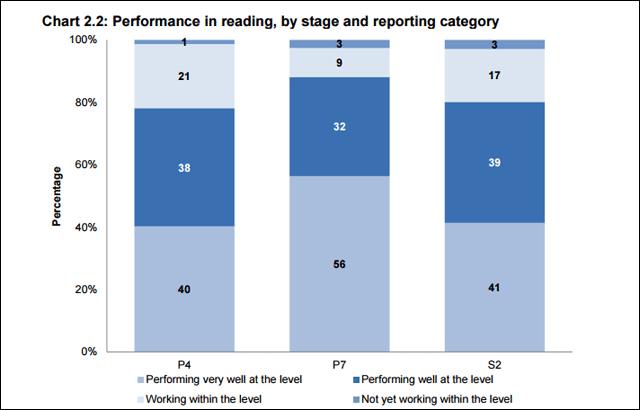
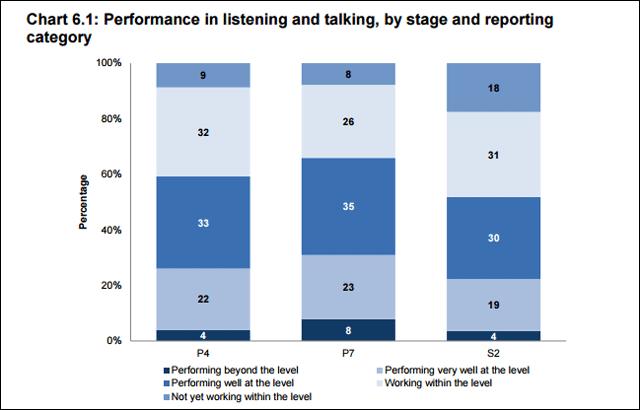

The issue of literacy levels in Scotland's schools was raised during a Labour-led debate at Holyrood on Wednesday afternoon.
Conservative MSP Mary Scanlon said she was pleased that the Scottish government had recognised the problem in both primary and secondary education.
But she insisted the government needed to answer two key questions: "What happens to the 66% of pupils in P7 who perform well or very well in numeracy and compare that to 42% of S2 pupils who perform well or very well.
"What happens in two years at secondary school that leads to a 24% drop in numeracy standards?"
Liberal Democrat leader Willie Rennie said the government had to acknowledge "weaknesses and failings" in order to make progress, and he criticised SNP backbenchers calling for more powers for the Scottish Parliament as a solution.
He told the chamber: "No other ideas about education at all, only more powers. It's a stuck record and they need to reflect on their eight years in power and eight years of failure."
However, Mr Rennie went on to welcome the government's Scottish Attainment Challenge and the funding through the Attainment Scotland Fund.
Labour MSP Jackie Baillie said education was much more than a social policy, she believed it must be part of a long term economic policy.
She added that the SNP record on educational attainment was a "national scandal".
Ms Constance told MSPs in the Holyrood chamber that the Scottish government was investing £100m because it was recognised that the "pace of change" needed to be stepped up.
- Published29 April 2015
